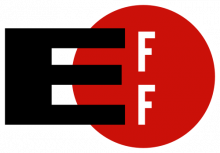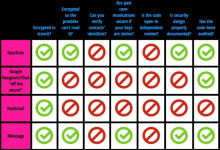Find a Security Vulnerability, Get a Reward: Announcing EFF's Security Vulnerability Disclosure Program
At EFF we put security and privacy first. This means working hard at keeping our members and site visitors safe, as well as the people who use the software we develop. We also dedicate staff time to advising security researchers, maintaining resources like our Coders' Rights Project, and helping groups like Facebook improve their bug reporting policies.











































































